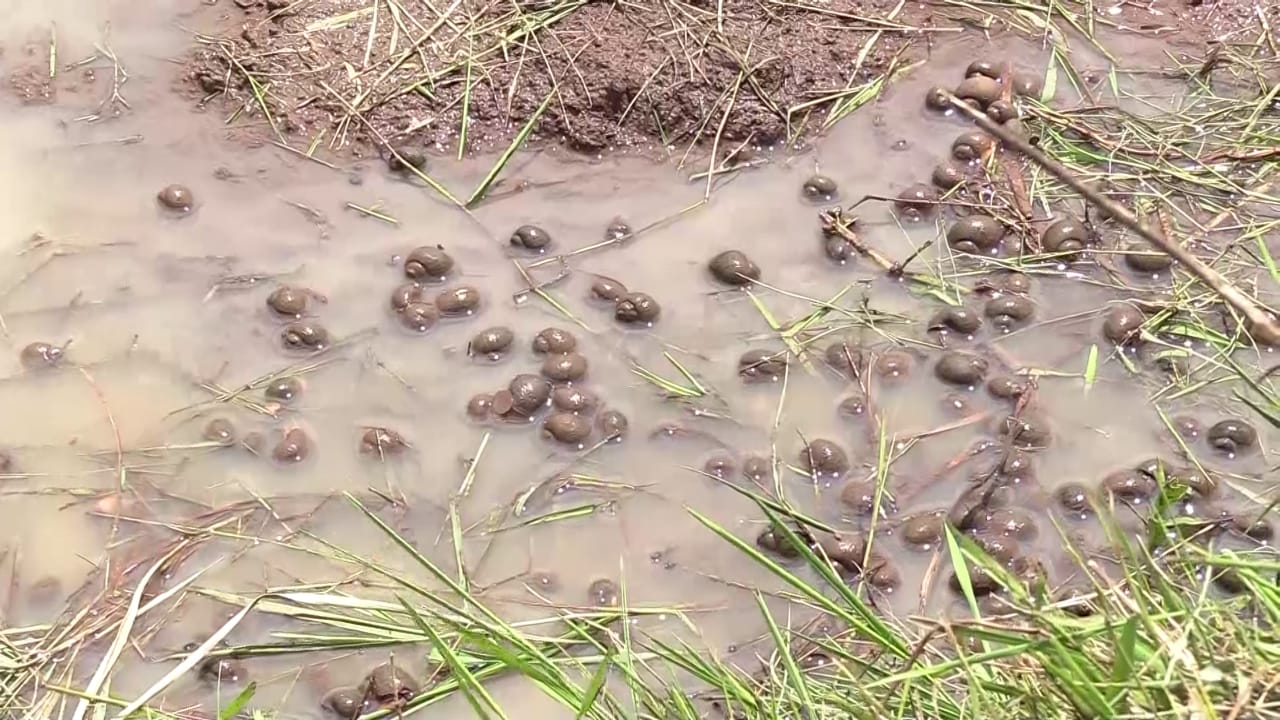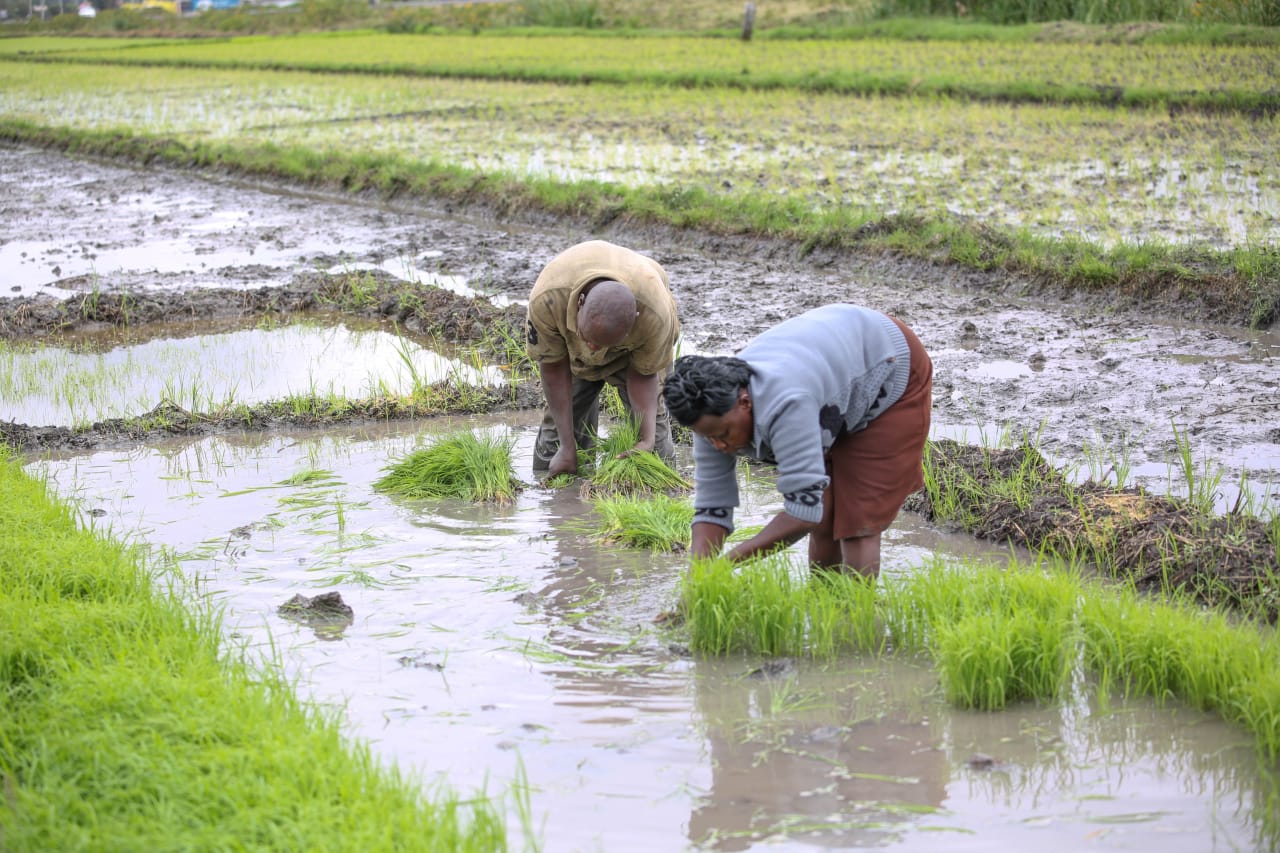
 Golden apple snails that are wreaking havoc in rice farms in Mwea, Kirinyaga.
Golden apple snails that are wreaking havoc in rice farms in Mwea, Kirinyaga.Rice farmers at the Mwea Irrigation Scheme in Kirinyaga county have appealed to the government for urgent help to manage an infestation of golden apple snails ravaging their farms.
Since the invasive snails first appeared in March 2020, the pests have spread rapidly, affecting nearly 90 per cent of the scheme’s 30,000 acres by 2021.
Crop damage has ranged between 50 and 80 per cent, causing heavy losses for farmers who depend on rice for their livelihoods.
Joseph Kamau, a farmer in the area, said they have resorted to using strong chemicals sourced from neighbouring countries after other control measures failed to work.
“These snails have been destroying our crops. Rice is what we depend on to support ourselves and our families,” he said.
The Mwea Irrigation Scheme is vital to Kenya’s food security, producing 80 per cent of the country’s 230,000 tonnes of rice annually, against a national consumption of one million tonnes.
Farmers say they are still waiting for the government to deliver on promises to provide long-term solutions to this growing problem.
A 2023 study by the Centre for Agriculture and Bioscience International, in partnership with the Ministry of Agriculture, the county government and Mwea Irrigation and Agricultural Development, revealed that over 70 per cent of daily pest complaints were due to golden apple snails.
Farms with moderate infestations saw a 14 per cent decline in yields and a 60 per cent drop in returns compared to unaffected farms.
Early advice to farmers included mass collection of snails and eggs, draining farms during vulnerable stages of rice growth to kill eggs, erecting barriers in water channels to limit spread and using ducks to feed on snails in drained fields.
In 2023, a multi-institutional technical team coordinated research and extension efforts, including spraying with a biodegradable chemical, which was largely ineffective.
Peter Njogu, another affected farmer, warned that rice farming in the area could become impossible without urgent action. “We have tried all means—spraying, hand-picking snails, destroying eggs—but they keep multiplying at an alarming rate,” he said.
With local chemicals proving ineffective, farmers increasingly rely on pesticides imported from Uganda and Tanzania.
However, Deputy Speaker Jinaro Njamumo cautioned against using harmful chemicals due to their adverse effects on the environment and potential health risks to consumers.The county is already among the regions with a high prevalence of cancer.
“My advice is for farmers to stop using those harmful chemicals because they will contaminate water canals and spread widely,” Njamumo said.
He urged the government to invest in research to develop effective and environmentally safe pest control methods to protect farmers and safeguard Kenya’s food security.
Instant analysis
Rice farmers at Mwea Irrigation Scheme in Kirinyaga county are facing severe losses due to an invasive golden apple snail infestation that has devastated up to 90 per cent of their farms since 2020. Despite attempts using barriers, manual removal and chemicals— including imported pesticides from neighbouring countries— the snails continue to spread, threatening Kenya’s crucial rice production, which supplies 80 per cent of the national demand. Farmers plead for urgent government intervention to find effective, environmentally safe solutions. Local leaders warn that harmful chemicals pose health and environmental risks, highlighting the need for research into sustainable pest management to protect livelihoods and food security.
 Farmers working on rice paddies in Mwea, Kirinyaga.
Farmers working on rice paddies in Mwea, Kirinyaga.












